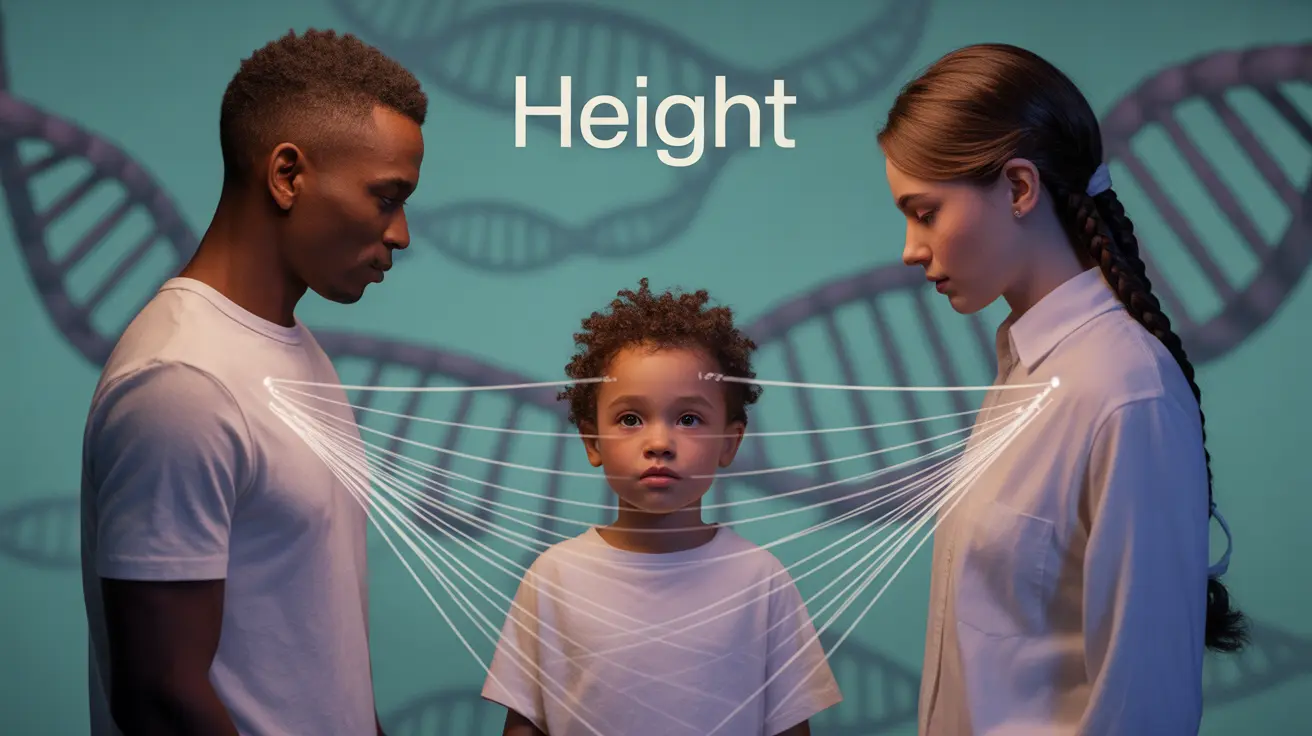Many people wonder about the genetic factors that determine their height and whether they inherit more height-related genes from their mother or father. The relationship between genetics and height is complex, involving multiple genes from both parents along with environmental factors that influence growth and development.
To better understand how height is inherited, let's explore the intricate interplay between parental genetics, environmental influences, and the various factors that determine an individual's final adult height.
The Genetic Blueprint of Height
Height inheritance isn't as simple as getting tall genes from one parent and short genes from another. Instead, it involves hundreds of genes that work together to influence your final height. These genes come from both parents and interact in complex ways to determine how tall you'll grow.
Combined Genetic Contribution
Both parents contribute approximately equally to their child's height potential. The old wives' tales about height coming predominantly from one parent are largely myths. Instead, scientists have identified that height is a polygenic trait, meaning it's influenced by many different genes working together.
Environmental Factors and Height Development
While genetics provide the blueprint for height potential, environmental factors play a crucial role in determining whether an individual reaches their full genetic height potential. These factors include:
- Nutrition during childhood and adolescence
- Quality of sleep
- Physical activity levels
- Overall health status
- Hormone levels
- Environmental conditions during growth years
The Role of Nutrition and Lifestyle
Even with favorable genetics for height, poor nutrition or certain health conditions can prevent a child from reaching their full height potential. Conversely, optimal nutrition and healthy living conditions can help ensure that genetic height potential is achieved.
Understanding Height Variations Within Families
It's common to see significant height differences between siblings or between children and their parents. This variation occurs due to several factors:
- Genetic recombination during reproduction
- Expression of different gene combinations
- Environmental influences during growth periods
- Epigenetic factors that affect gene expression
Genetic Surprises in Height Inheritance
Sometimes, children may be significantly taller or shorter than both parents due to genetic recombination and the expression of genes from previous generations. This phenomenon, known as genetic variation, explains why height can seem to "skip" generations or appear unexpectedly in families.
Frequently Asked Questions
Does my height come more from my mother's genes or my father's genes?
Height inheritance is typically equal from both parents, with each contributing approximately 50% of the genes that influence height. There's no scientific evidence suggesting that height genes come predominantly from either parent.
How do both parents' genetics influence a child's final height?
Both parents contribute multiple genes that work together to determine height potential. These genes influence various aspects of growth, including bone length, growth plate activity, and hormone production.
Can nutrition and environment change the height predicted by my parents' genes?
Yes, environmental factors can significantly impact whether a person reaches their genetic height potential. Proper nutrition, adequate sleep, and overall health during growth years are crucial for achieving maximum height potential.
What genetic factors explain why some children are much taller or shorter than their parents?
Height variations can occur due to genetic recombination, the expression of recessive genes, and the complex interaction of multiple genetic factors. Additionally, environmental influences can cause differences in height expression.
Are there specific genes inherited only from the mother or father that determine height?
While certain genes may be inherited from specific parents, height is determined by the combined effect of many genes from both parents. There's no single "height gene" that comes exclusively from either parent.




